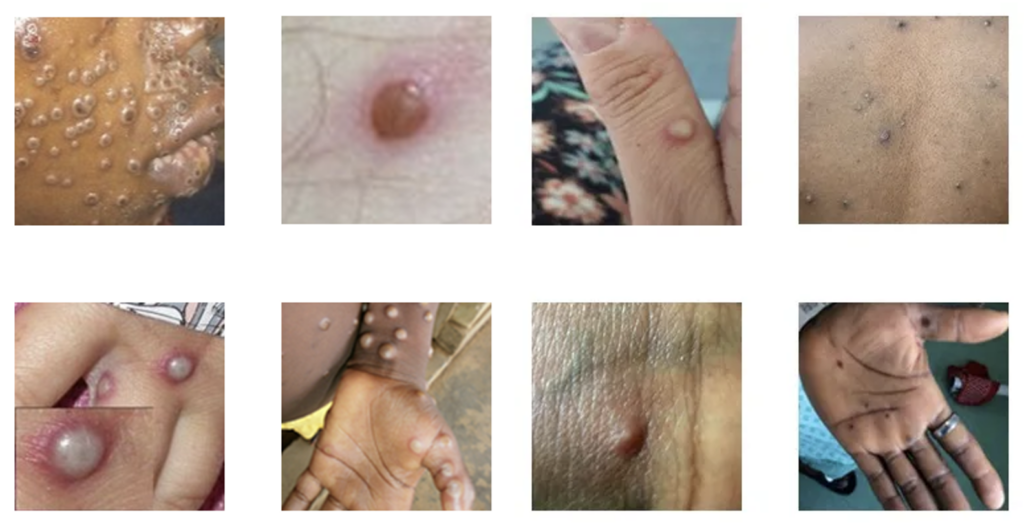WHY A SECOND VACCINATION IS IMPORTANT NOW
What happened to mpox? Mpox—previously known as monkeypox—hasn’t made headlines lately like it did last summer, but new cases have been reported in the United States, including right here in King County. Unvaccinated people and people who have not received both doses may still be at risk. Fortunately, mpox vaccine is easier to get than last year, so, now is a great time to get an mpox vaccination if you are recommended to receive the vaccine.
We talked to Dr. Eric Chow, Chief of Communicable Disease Epidemiology for Public Health – Seattle & King County, to better understand the current situation with mpox and who should get vaccinated.
How is mpox contracted and spread?
In the current outbreak, mpox is often transmitted through close, skin-to-skin contact, almost exclusively associated with sexual activity. If you have symptoms of mpox, visit a healthcare provider and get tested, even if you have been vaccinated.
Last year, many people at risk got one dose of mpox vaccine. Why is it important to get a second dose?
If you are at risk for mpox, two doses of the vaccine provides better protection than one dose. In King County, approximately 40% of people who may be at increased risk for mpox have received at least one dose of JYNNEOS, the vaccine that prevents mpox, and about a quarter have received both doses.
There are new cases in the U.S. and mpox could spread further. We can prevent a resurgence and better protect the whole community if people in King County who are at risk get vaccinated now.

Who should get the mpox vaccine? Should I get the mpox vaccine if I am not at increased risk?
Public Health recommends mpox vaccination for the following people:
- Individuals who have had skin to skin or other close contact with someone with mpox
- Men or transgender individuals who have sex with men or transgender individuals
- Individuals who engage in commercial and/or transactional sex (for example, sex in exchange for money, shelter, food, or other goods or needs)
People who request vaccination can receive it without having to disclose information on personal risk.
We do not recommend the mpox vaccination for members of the general public who are not at risk of exposure to mpox.
Do I need to be vaccinated if I had mpox?
In general, no. We believe that having mpox provides good protection against getting it again. The one exception to this is among people who have very weakened immune systems. If you have had mpox but have compromised immune system due to advanced HIV infection or certain types of cancer, talk to your doctor about whether you need mpox vaccine.
Can I get a second dose if I received the first dose more than four weeks ago?
Yes. Two doses of the vaccine offer the best protection, even if it’s been longer than four weeks since receiving your first dose. If you only received one dose of JYNNEOS vaccine during the outbreak last year, it’s not too late to get caught up — you do not need to restart the series.
Where can I get the mpox vaccine?
If you are at risk for mpox, contact your healthcare provider.
- Free vaccination is also available at the Sexual Health Clinic at Harborview, 908 Jefferson St, 11th Floor in Seattle.
- For a complete list of clinics offering the free vaccination by appointment or walk-in visit the Mpox vaccination page.
Last year, mpox vaccine was limited and harder to get. Why is it easier to get vaccinated now?
This year, there is plenty of mpox vaccine supply. Anyone who asks for the vaccine can get it without having to answer questions or explain why they are at risk. Last year, there was limited supply of vaccine, so criteria was focused on reaching those at highest risk for exposure.
How effective is the mpox vaccine?
Mpox vaccine is effective at protecting people against infection, symptomatic illness, hospitalization, and death. Recent studies suggest that two doses of JYNNEOS vaccine are 66% to 88% effective at preventing infection. And even if someone does get infected, vaccinated individuals tend to have milder illness. For maximum protection, it is important that you receive two doses, especially if you are immunocompromised.
What if I don’t have a healthcare provider or insurance?
Mpox vaccinations are free and open to everyone eligible regardless of immigration status. You will not be billed for the vaccine or charged a fee for the visit, whether you have insurance or not.
If you don’t have a provider or health insurance, contact Public Health’s Access and Outreach program, 1-800-756-5437 to be connected to a medical provider, or visit one of the free clinics on the Mpox vaccination page.
Originally published June 9, 2023


